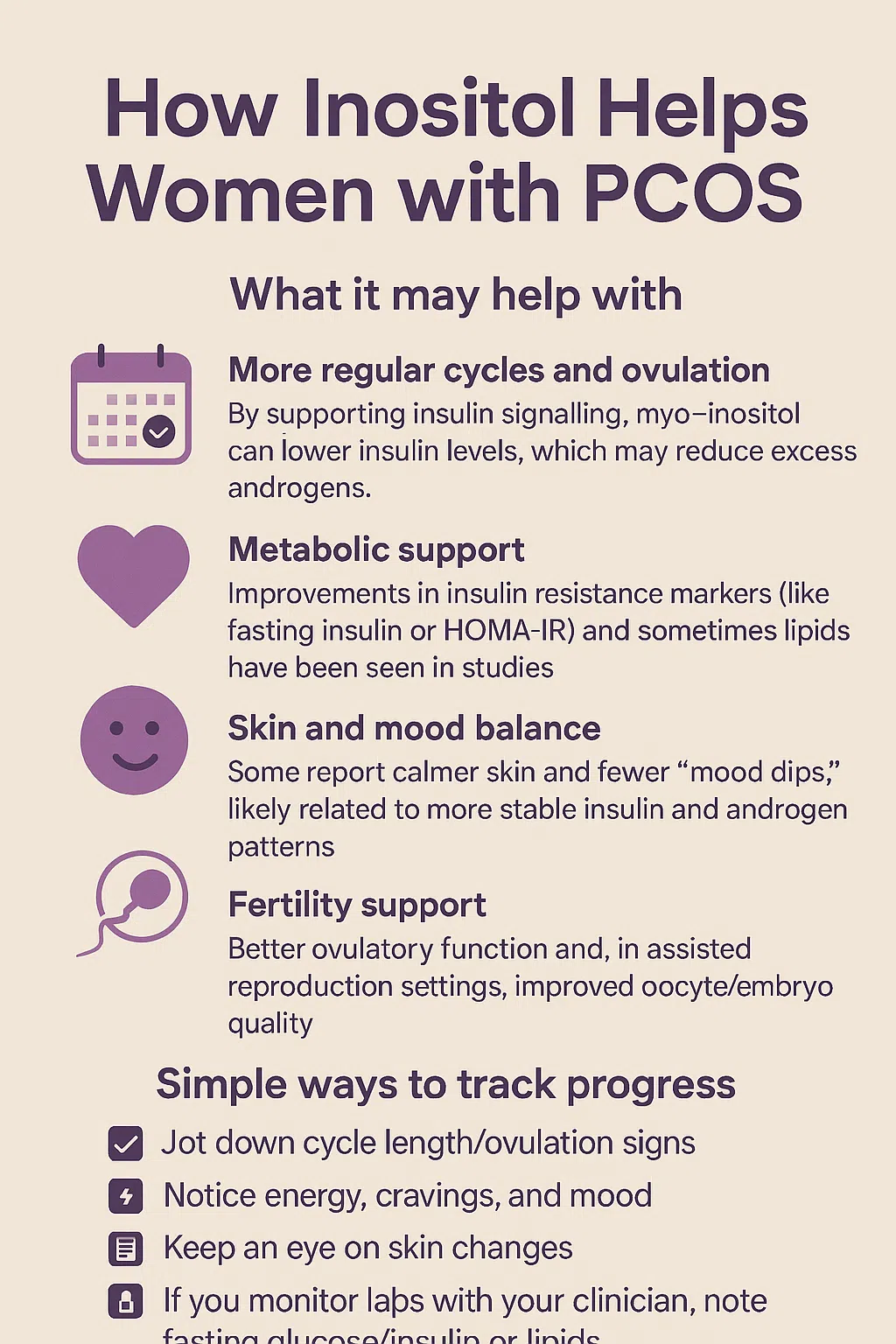How does inositol help women with PCOS?

We can’t offer medical advice, but here’s how many women with PCOS say inositol—especially myo‑inositol—can support their day-to-day wellbeing.
What it may help with
- More regular cycles and ovulation: By supporting insulin signalling, myo‑inositol can lower insulin levels, which may reduce excess androgens. Many women notice cycles become more predictable over time.
- Metabolic support: Improvements in insulin resistance markers (like fasting insulin or HOMA‑IR) and sometimes lipids have been seen in studies. Day-to-day, people often describe steadier energy and fewer sugar cravings.
- Skin and mood balance: Some report calmer skin and fewer “mood dips,” likely related to more stable insulin and androgen patterns.
- Fertility support: Better ovulatory function and, in assisted reproduction settings, improved oocyte/embryo quality have been reported in several trials.
Safety and what to expect
- Tolerance: Generally well tolerated. The most common early side effect is mild digestive upset, which often settles with food or a slower ramp-up.
- Patience pays: Many people find it takes 6–12 weeks of consistent use to notice changes—and that’s totally okay. Small steps really do count.
- A note on D‑chiro‑inositol (DCI): We do not recommend DCI on its own. Some research raises concerns that higher-dose or long-term DCI alone may be less helpful for the ovary and could be counterproductive for egg quality. If you’re considering inositol, myo‑inositol is the form most often studied for cycle regularity and metabolic support.
Simple ways to track progress
- Jot down cycle length/ovulation signs
- Notice energy, cravings, and mood
- Keep an eye on skin changes
- If you monitor labs with your clinician, note fasting glucose/insulin or lipids
Key references (plain‑language summaries available if helpful)
- International Evidence‑Based Guideline for PCOS (2023 update): discusses inositol as an option for metabolic and ovulatory support, with variable evidence quality. Teede HJ et al., Monash University: https://www.monash.edu/medicine/sphpm/mchri/pcos/guideline
- Unfer V, Facchinetti F, et al. Inositols in PCOS—overview of mechanisms and clinical trials. Nutrients. 2017;9(7):646. doi:10.3390/nu9070646
- Pundir J, Psilidas S, Gopalakrishnan M, et al. Inositol treatment in women with PCOS: systematic review and meta‑analysis of randomized trials. Gynecological Endocrinology. 2018;34(7):546–557.
- Laganà AS, Vitagliano A, Noventa M, et al. Myo‑inositol in PCOS: a systematic review and meta‑analysis showing improvements in insulin resistance and ovulatory function. Arch Gynecol Obstet. 2018;298(3):487–502.
You can read our own analysis of over 400 real reviews here.